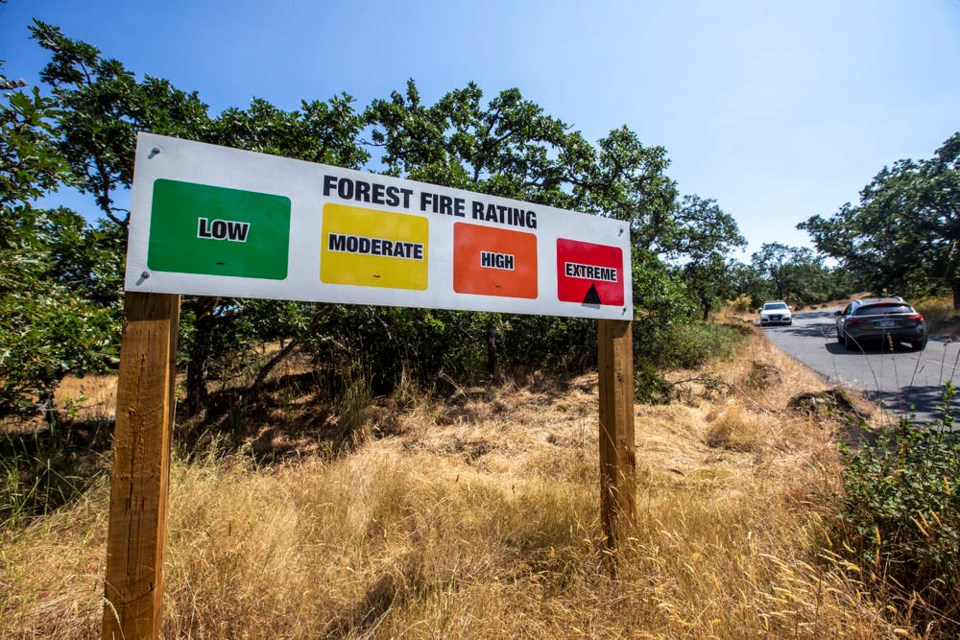A small fire on the border of the Juan de Fuca Provincial Park near Jordan River is under control and crews are carrying out the slow work of extinguishing it underground.
It was reported at 10 a.m. Saturday and crews “have made good progress,” Donna MacPherson, fire information officer with the B.C. Wildfire Service, said Saturday afternoon.
The fire covers 0.3 hectares. Fire will run underground burning organic material and “slumber” for a period of time before returning the surface, MacPherson said.
Crews are digging up the ground and wetting down material because the ground is so dry right now. “Our crews are being very thorough.”
The cause is under investigation, MacPherson said.
A second fire, near Port Alberni, is also under control. Crews are checking the blaze, which was reported June 28, periodically for hot spots before it is declared to be officially out.
Most of Vancouver Island is considered to be at a “high danger” for risk of wildfires after days of blasting heat and no rain, according to the B.C. Wildfire Service.
No heavy rains are expected within the next two weeks, MacPherson said. That’s what is needed to change the fire danger rating.
Some of the Gulf Islands, such as Salt Spring, along with parts of North Saanich and the northern tip of Vancouver Island are rated at extreme danger.
MacPherson praised citizens for the low numbers of fires on the Island.
All open burning is banned, including campfires. The Wildfire Service is asking people to be respectful of the forest, she said.
If someone is smoking, she recommends carrying a bottle of water to extinguish a cigarette.
Drivers and anyone using dirt bikes, motorcycles, or all-terrain vehicles are asked to stick to main tracks on dirt roads. Veering into vegetation on the side of road could cause the plants to catch on fire.
Anyone shooting is asked to go to ranges where fire-suppression systems are set up.
If someone shoots in the woods, MacPherson recommends going to a place like a gravel pit to avoid vegetation. Bullets and cases become hot when fired.
“We just want people to be really careful.”
Meanwhile, teams from several Island communities are pitching in to help people who raced to escape devastating wildfires in B.C.’s Interior.
City of Nanaimo emergency support services volunteers are providing a virtual service to help evacuees register with the provincial emergency registration system and find current information and available supports.
Nanaimo Mayor Leonard Krog said the team has been “called upon several times to support other communities over the years and have always answered the call.”
The team is known as a leader in working with the online provincial registration system and also developed a virtual response model for COVID-19, the city said.
Members are continually training to prepare for emergencies and to develop streamlined and efficient ways to respond in times of need.
Other Island teams are also being called upon, with fire engines and crews from Sidney and Saanich among those heading to the Interior to help out.
cjwilson@timescolonist.com



